
LEADERS OF
MEN
Ten Marines
Who Changed the Corps
Anne Cipriano Venzon
Martin Gordon, consulting editor

SCARECROW PRESS, INC.
Published in the United States of America
by Scarecrow Press, Inc.
A wholly owned subsidiary of
The Rowman & Littlefield Publishing Group, Inc.
4501 Forbes Boulevard, Suite 200, Lanham, Maryland 20706
www.scarecrowpress.com
Estover Road
Plymouth PL6 7PY
United Kingdom
Copyright 2008 by Anne Cipriano Venzon
All rights reserved. No part of this publication may be reproduced, stored in a retrieval system, or transmitted in any form or by any means, electronic, mechanical, photocopying, recording, or otherwise, without the prior permission of the publisher.
British Library Cataloguing in Publication Information Available
Library of Congress Cataloging-in-Publication Data
Venzon, Anne Cipriano, 1951
Leaders of men : ten Marines who changed the Corps / Anne Cipriano Venzon;
Martin Gordon, consulting editor.
p. cm.
Includes bibliographical references and index.
ISBN-13: 978-0-8108-6081-0 (pbk. : alk. paper)
ISBN-10: 0-8108-6081-3 (pbk. : alk. paper)
1. United States. Marine CorpsOfficersBiography. 2. United States. Marine CorpsHistory19th century. 3. United States. Marine CorpsHistory20th century. 4. LeadershipUnited StatesBiography. I. Gordon, Martin K. II. Title.
VE24.V46 2008 359.9'6092273dc22 | 2007042757s |
 The paper used in this publication meets the minimum requirements of American National Standard for Information SciencesPermanence of Paper for Printed Library Materials, ANSI/NISO Z39.48-1992.
The paper used in this publication meets the minimum requirements of American National Standard for Information SciencesPermanence of Paper for Printed Library Materials, ANSI/NISO Z39.48-1992.
Manufactured in the United States of America.
Contents
Acknowledgments
RESEARCH FOR THIS BOOK could not have been done without the assistance of many talented and generous people. The staff of the Marine Corps Archives, particularly J. Michael Miller, James Ginther and Patricia Mullin were tremendously helpful, not only in locating documents but also in suggesting additional avenues of research. Trevor Plante at the National Archives was able to find information that proved vital to this research. Gary A. LaValley, Archivist at Nimitz Library at the United States Naval Academy, and Kenneth Hickman, Curator of the USS Constellation Museum also helped me gain insight into the early careers of several of the men discussed in this book. Lieutenant Colonel W.R. Waller II was exceptionally helpful in my research on his grandfather, and our conversations were one of the highlights of this project.
I also owe much gratitude to April Snider, Krista Sprecher and Martin Gordon at Scarecrow Press, who have eased me through the actual production of the book. Finally Rose Cipriano, John Venzon and Elizabeth Venzon, have given new meaning to the word patience as theyve proofread endless drafts and talked me through countless self-inflicted computer glitches. The book wouldnt have been done without them.
Introduction
IN APRIL 1861, A STUDIOUS YOUNG MAN decided that the Union cause was important enough to defy his father, leave school, and join the Marine Corps. In April 1898, a gangly teenager was so incensed that someone would blow up an American warship that he defied his father, left school, and joined the Marine Corps. His first commanding officer, a bearded, battle-hardened veteran, was Lt. Col. Robert W. Huntington, the same youngster who had joined up in 1861. The second young man was Smedley D. Butler. Both became legends within the Corps.
In the thirty-seven years between their commissionings, the size of the Marine Corps hardly changed. There were ninety-three officers and 3,074 enlisted men in 1861, and 119 officers and 4,712 enlisted in 1898. However, in those years the country underwent a radical transformation, and so did the fiber of the Marine Corps.
With the completion of the transcontinental railroad in 1867, the United States entered a period of explosive expansion. Industrial production, population growth, and foreign commerce were quickly driving the United States toward world power status. However, the American military, particularly the sea services, lagged far behind this growth, with glacial promotion rates, substandard living and working conditions, and obsolete vessels. It was difficult for powers like Great Britain, with an empire upon which the sun never set, to take the antiquated military establishment of the United States seriously. The Marine Corps resembled a quaint constabulary. In 1865 no one would have thought of an American marine as a Devil Dog. No one believed, as General John J. Pershing learned in a later war, that the deadliest weapon in the world is a marine and his rifle. Yet between 1865 and 1917 something changed, and much of that change was due to leaders like those discussed in this book.
Far from unthinking fighting machines, many of them were cultured, educated, thoughtful individuals. George C. Thorpe had not one but two advanced degrees and wrote a book on logistics that is still in print, along with several legal texts and treatises. Huntington complained to his parents that he had not brought enough Greek books with him on an extended cruise to the Orient, although he was able to keep up his Latin and borrowed several books on Napoleon. Littleton Waller, with no formal training, argued a case before the U.S. Supreme Court that is still citied as an important precedent. Yet their talents werent exclusively intellectual. Their troops followed them willingly through the hell of Samar and the wilds of Abyssinia.
Other figures in this volume were not as highly educated, but had an innate understanding of leadership and street smarts. They, too, inspired their men to do things they ordinarily wouldnt consider. In the face of thousands of bloodthirsty Boxers and Imperial Chinese troops, John T. Myers led a handful of marines onto the wall protecting Pekings Legation Quarter. Though his troops rotated off the wall for food and sleep, Myers remained there for days until finally ordered below. After a brief rest he returned to his unit and stayed there, only leaving when he was stabbed while leading a charge that pushed the Boxers well back from the allied lines.
Hiram Bearss made the long-distance march an art form, constantly crossing the Philippine and Dominican jungles, and always at the head of the line, except when he was walking toward the rear, encouraging his marines. Eventually he would lead them straight through German lines in total silence to seize the town of Vigneulles. How could Smedley Butlers men fail to respect him when he himself was shot while bringing a wounded comrade back to their lines, took a rowboat into a gale to resupply them, led his men into the Nicaraguan interior with a raging case of malaria, and at age forty, when as a general he could have used his vehicle, he carried a young soldiers load as they marched from the docks at Le Havre to Camp Pontanezen?
Perhaps of greatest importance was the devotion these officers had for the Marine Corps and the individuals they led. It is not an exaggeration to say that they looked at their men as their sons and brothers. Wendell C. Neville, 14th Commandantand loudest man in the Marine Corpswas also known for his fair and understanding treatment of his troops. Joseph H. Pendleton went to enormous lengths to remain in the Corps after losing most of the sight in one eye in a gunnery accident. He didnt earn the nickname Uncle Joe because he was harsh and unreasonable. Henry C. Cochrane
Next page

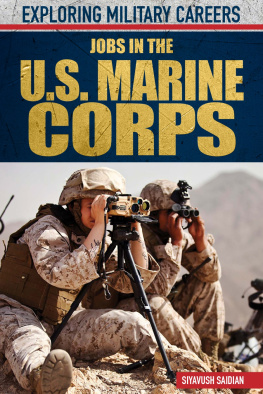
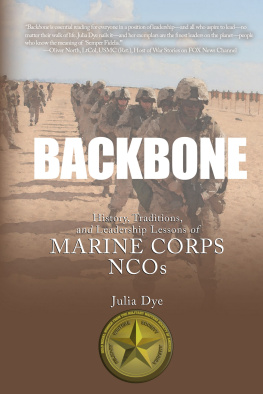
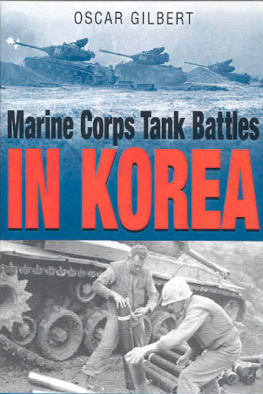
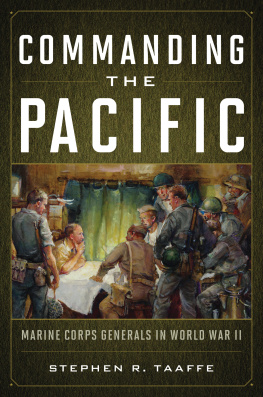

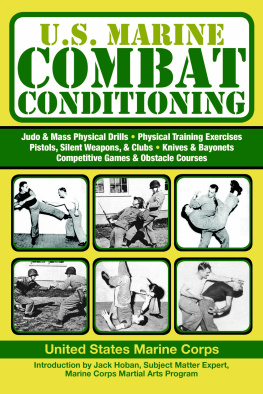
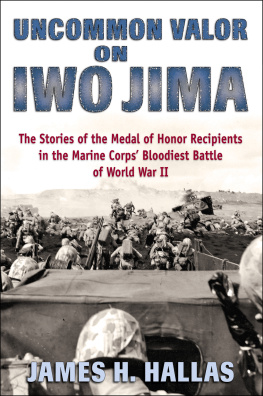

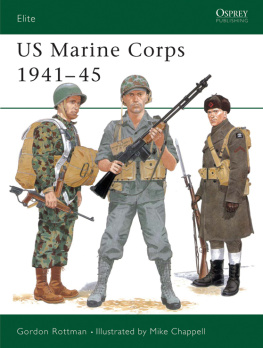




 The paper used in this publication meets the minimum requirements of American National Standard for Information SciencesPermanence of Paper for Printed Library Materials, ANSI/NISO Z39.48-1992.
The paper used in this publication meets the minimum requirements of American National Standard for Information SciencesPermanence of Paper for Printed Library Materials, ANSI/NISO Z39.48-1992.